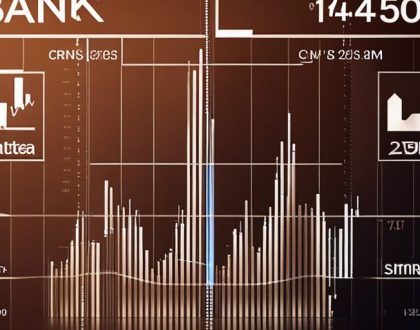Malta’s Money Future: Crypto & More

Future monetary landscapes in Malta are rapidly evolving, with cryptocurrencies leading the charge. As the financial world embraces digital currencies, Maltese businesses and consumers are navigating this new frontier of money. This blog post investigates into the emerging trends, challenges, and opportunities presented by the future of money in Malta, exploring the impact of crypto and beyond on the country’s economic ecosystem.
Evolution of Currency in Malta
Historical Overview
While Malta has a rich history of currency, it wasn’t until 1972 that the Maltese Lira was introduced, replacing the Maltese Pound. The Lira remained the national currency until Malta adopted the Euro in 2008, joining the Eurozone.
Transition to Digital Banking
Any country’s financial landscape has evolved with the rise of digital banking in Malta. With more consumers opting for online and mobile banking services, traditional brick-and-mortar banks have had to adapt to cater to changing customer preferences.
An overview reveals that Malta is embracing digital banking, with banks offering innovative online platforms, mobile apps, and contactless payment options. This shift reflects a growing trend towards a cashless society and sets the stage for potential adoption of cryptocurrencies in the future.
Crypto Currency Adoption in Malta
Government Initiatives and Regulations
One of the key driving factors for crypto currency adoption in Malta is the government’s proactive stance towards regulating this new form of money. The Malta Digital Innovation Authority (MDIA) and the Virtual Financial Assets Act (VFA) provide a solid legal framework that fosters innovation and ensures investor protection.
Impact on the Financial Sector
One major impact of crypto currency adoption on the financial sector in Malta is the integration of blockchain technology into traditional financial services. Banks and financial institutions are exploring ways to leverage blockchain for faster and more secure transactions, while also enhancing transparency and reducing costs associated with cross-border payments.
Future Predictions and Innovations
Trends in Blockchain Technology
Some of the trends in blockchain technology that we can expect to see shaping the future of money in Malta include the implementation of smart contracts, decentralized finance (DeFi) applications, and the rise of non-fungible tokens (NFTs). These advancements have the potential to revolutionize the way financial transactions are carried out, offering increased efficiency, transparency, and security.
Emerging Financial Technologies
One emerging financial technology that is gaining traction in Malta is artificial intelligence (AI) in financial services. AI-powered solutions are being used for risk assessment, fraud detection, personalized customer experiences, and automated trading. With the increasing volume of data in the financial sector, AI is proving to be a valuable tool for gaining insights, making more informed decisions, and improving overall operational efficiency.
Summing up
The Future of Money in Malta is set to see significant advancements in the field of cryptocurrencies and beyond. With the government’s proactive approach in implementing crypto regulations and the increasing adoption of digital assets by businesses and consumers, Malta is poised to become a leading hub for innovative financial technologies. As the landscape continues to evolve, it is clear that the traditional concept of money is transforming, making way for decentralized and digital forms of currency to thrive in the Maltese economy.
FAQs:
What was Malta’s previous currency before adopting the Euro?
Malta’s previous currency was the Maltese Lira, introduced in 1972, which replaced the Maltese Pound until Malta joined the Eurozone in 2008.
How is Malta adapting to the rise of digital banking?
Malta is embracing digital banking with innovative online platforms, mobile apps, and contactless payment options offered by banks, reflecting a shift towards a cashless society.
What government initiatives support cryptocurrency adoption in Malta?
Government initiatives such as the Malta Digital Innovation Authority (MDIA) and the Virtual Financial Assets Act (VFA) provide a regulatory framework fostering innovation and ensuring investor protection.
What are some emerging trends in blockchain technology in Malta?
Emerging trends include smart contracts, decentralized finance (DeFi) applications, and the rise of non-fungible tokens (NFTs), which have the potential to revolutionize financial transactions.
How is artificial intelligence (AI) impacting financial services in Malta?
AI is being utilized for risk assessment, fraud detection, personalized customer experiences, and automated trading, offering insights and improving operational efficiency in the financial sector.
Recommended Posts

Malta’s Wildlife and Nature Reserves
July 2, 2024

Spotlight on Malta’s iGaming Titans
July 2, 2024




